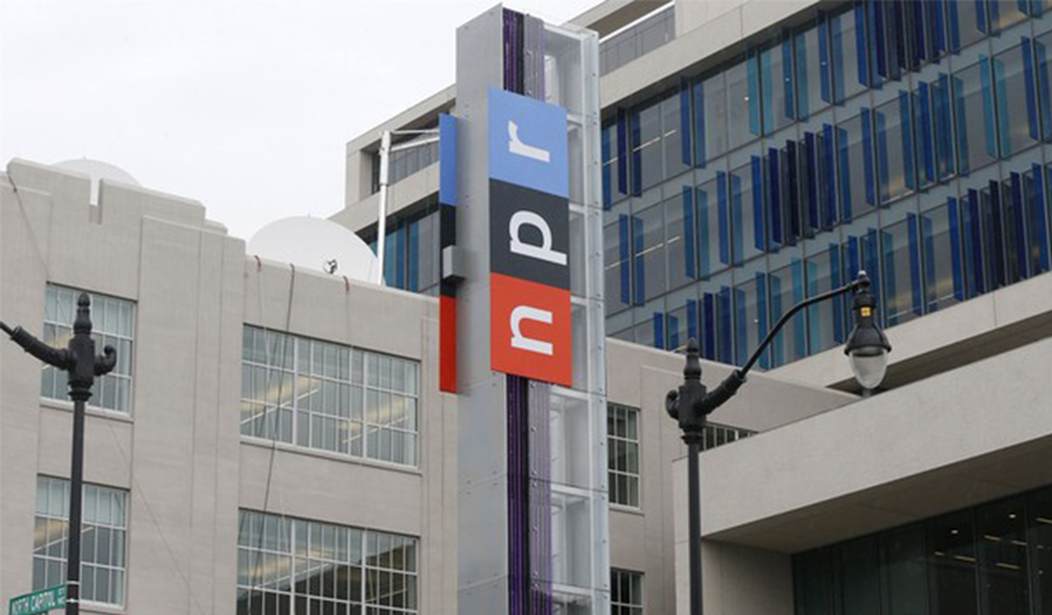National Review Editor Rich Lowry was on the Megyn Kelly show a few weeks ago and, in the midst of the discussion, Lowry said something that sounded like the N-word. A Media Matters employee clipped and highlighted it from there it was off to the races.
Having a hard time coming to any conclusion besides the obvious one about what Rich Lowry catches himself blurting out here pic.twitter.com/PFHQMCS8UP
— Madeline Peltz (@peltzmadeline) September 16, 2024
Admittedly it does sound like he said the N-word at first listen and lots of lefties were happy to repeat that of Lowry's real feelings.
Oh Rich Lowry forgetting he isn't just chatting with his buddies and saying the quiet part out loud on national TV. 42 seconds in Haitian Ni.... https://t.co/1FinpjmAEQ
— AskAubry 🦝 (@ask_aubry) September 16, 2024
To their credit, there were some folks who didn't go along with the herd.
I am no Lowry fan, not even close. But he didn't say the n-word here. He got tongue-tied for a split second. That's all. I hope we focus on the real issues, because there are plenty. https://t.co/FJdSf0KCBA
— @ijbailey (@ijbailey) September 16, 2024
For his part, Lowry said it was a verbal stumble over two similar words, migrants and immigrants.
Yep, this is exactly what happened—I began to mispronounce the word “migrants” and caught myself halfway through https://t.co/Y1wyvrkq8x
— Rich Lowry (@RichLowry) September 16, 2024
All of this might have mostly remained an online dustup except that two days after the clip circulated, NPR decided to publish a story about it under the headline, "Conservative editor-in-chief appears to use racial slur to refer to Haitian migrants." That story was published about two hours after NPR's own media reporter tweeted that the claim was in error.
After watching several times, even slowing this down to 0.25 speed, I believe Lowry garbled migrants and immigrants just after saying the word “Haitian.”
— David Folkenflik (@davidfolkenflik) September 17, 2024
It is startling to hear what emerged. Nonetheless, critics can best grapple directly with the substance of what he is saying. https://t.co/ZrdD8jCJff
NPR's story about Lowry was changed pretty dramatically over the next few hours. NPR's public editor decided to look into why it was published at all.
The NPR story was substantially updated several hours after it was published. The story’s original headline read: “Conservative editor-in-chief appears to use racial slur to refer to Haitian migrants.” That headline was later updated to: “Conservative editor-in-chief says mispronunciation led to accusations of using slur.” Folkenflik’s tweet was added. And Lowry’s response was moved up to the first paragraph.
NPR’s standards editor Tony Cavin explained why the headline and story were modified after publication. “The focus of the story was changed, frankly, to I think better reflect what actually happened, which was that he said something, and some people will say he’d made this slur. He said he had not. And I think I would argue the original framing of the story was not as fair to him as it should have been.”
There is no correction on NPR’s website noting those changes. Cavin said that’s because there was nothing factually wrong with the first story. Instead, he said the story and headline needed more editing.
To her credit, the public editor disagreed with the standards editor about the original story's need for correction.
We disagree with NPR on two points. First, the story as originally published wasn’t just unfair. It was inaccurate. The story told readers that Lowry “appeared to use” the racial slur...
Second, after recognizing that the story was wrong, NPR should have acknowledged the changes to both the headline and the body of the story with a formal note of clarification. Because readers were much more likely to come away from the original story with the belief that Lowry actually said the racial slur, a clarification note would be a public acknowledgment that the first story fell short.
Lowry had a couple of speaking engagements canceled over this but is otherwise fine. But as he said himself, that's not really the point.
The cliché about lawfare is that the process is the punishment.
When it comes to cancellation, there is no process — there’s merely accusation and then punishment.
NPR's public editor had the decency to criticize her own outlet for getting this wrong and not fessing up about it with a note or a correction, but the left-wing hacks who jumped on this will never let it go, much less correct the record.








Join the conversation as a VIP Member